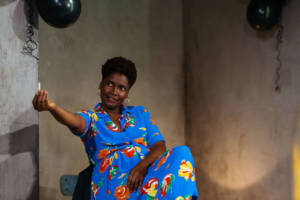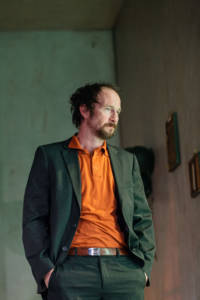In 2006, fifteen years after the end of military rule in Chile, bombs started exploding in the middle of the night. Most blew up windows of banks and a few rattled the walls of police precincts. The attacks were done carefully. Nobody died or got hurt. Nobody was detained. The police were mostly clueless and unable to stop the campaign and by 2009 bombs were exploding all over Chile’s big cities almost every week. Obscure anarchist websites claimed that the bombing campaign was part of a wider struggle against the state and its oppressive institutions.
During those years Chileans remained mostly indifferent to the bombs. The images of banks with broken windows were difficult to explain so it was easier to look away from them. Since the bombs produced no victims and banks were not eager to see their brands tarnished by the attacks the news slowly disappeared from the covers of newspapers. Meanwhile the bombs kept exploding.

In a way the bomb wave was unsurprising. For years after the dictatorship was formally over groups of hooded protesters had been fighting the police on the streets. They would throw petrol bombs at their patrols just as the left-wing activists had done during the 80’s against Pinochet. Most of these battles happened in working-class neighborhoods in Santiago, where the military had killed so many young people. The walls in those neighborhoods are still painted with the faces of young men and women killed by the police and the military. During the years of transition into democracy young people paid homage to those killed fighting the regime. The petrol bomb became not only a way of fighting the police directly, but also a symbol of the unfinished fight against the dictatorship. Many young people felt that the dictatorship had never truly gone away.
Chile’s dictatorship perpetuated itself well beyond the seating of a democratic president in 1990. Pinochet remained the head of the Chilean armed forces and was only forced out of his position after he was detained by Spanish magistrate Baltazar Garzón in 1998 in London while he was seeking arms contracts. However, the constitution imposed by his regime remained in place, mostly unreformed, as did the neoliberal shock wasteland.

Throughout the horrors of the dictatorship (1973-1990) violent resistance became part of Chile’s urban culture. In March of 1985, during the most intense days of open popular resistance against the dictatorship, Carabineros, Chile’s national police, shot and killed brothers Eduardo (20) and Rafael Vergara (18) during a night rally at the Villa Francia neighborhood in Santiago. Three years later the oldest brother, Rafael, was found dead blown up by a bomb. His death has never been conclusively cleared but human rights organizations have called it an assassination by intelligence forces using TNT. He belonged to the Movement of the Revolutionary Left (MIR). Since then, every March, left-wing activists commemorate the lives of the Vergara brothers “Day of the Young Combatant,” a street music and arts festival that always ends in the middle of the night with an open fight against the police. A few bomb blasts take down power lines and parts of the city are left in complete darkness.
As Chile consolidates its democracy and improves social services, inequality breeds discontent and crime. State violence has never gone away. The police has waged a war against the Mapuche people who fight to recover the land stolen by the Chilean state. Mapuche political prisoners are on hunger strike demanding a fair treatment by the justice system. In this climate some might find that planting bombs is simply a statement of self-defense in an ongoing war.

Over the years the Mapuche conflict has taken over as the main theatre of violence in the country. The police raided squat houses and mostly suppressed the bomb campaign, however, the bombs have never stopped blowing up in the middle of the night. New generations find in that conflict new reasons to plant them and tutorials are easily available on the internet.
In recent years the idea of the bomb blast has become increasingly offensive as the phenomenon has become the source of fear and death all over the world. However, in some places, where they are meant to blow up the windows of banks, the same banks that sometimes finance weapons and support oppression, bombs have survived as a baffling and complicated political statement..
In Chile these perplexing explosions connect the country’s traumatic history with the universal language of gunpowder and eternal warfare.
